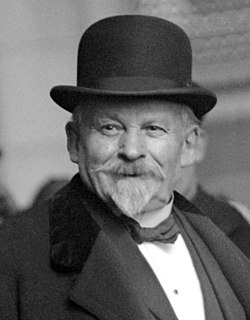A Quote by Geshe Kelsang Gyatso
We know that we are happy when our mind is peaceful, and unhappy when it is not. It is therefore clear that our happiness depends upon our having a peaceful mind and not on good external conditions. Even if our external conditions are poor, if we maintain a peaceful mind all the time we shall always be happy.
Related Quotes
The purpose of meditation is to make our mind calm and peaceful. If our mind is peaceful, we will be free from worries and mental discomfort, and so we will experience true happiness. But if our mind is not peaceful, we will find it very difficult to be happy, even if we are living in the very best conditions.
If we are not happy, if we are not peaceful, we cannot share peace and happiness with others, even those we love, those who live under the same roof. If we are peaceful, if we are happy, we can smile and blossom like a flower, and everyone in our family, our entire society, will benefit from our peace.
It can be helpful to remember that the enlightened mind and the ordinary mind are two sides of the same coin. The mind is like the sea, which can be rough on the surface, with mountainous waves stirred up by ferocious wind, but calm and peaceful at the bottom. Sometimes we can catch sight of this peaceful mind even in times of trouble. These glimpses of peace show us that we may have more inner resources to draw upon than we had realized. With skill and patience, we can learn how to be in touch with our peaceful selves.
Our state of mind plays a major role in our day-to-day experiences as well as our physical and mental well-being. If a person has a calm and stable mind, this influences his or her attitude and behavior in relation to others. In other words, if someone remains in a peaceful and tranquil state of mind, external surroundings can cause them only a limited disturbance.
Although you can find certain differences among the Buddhist philosophical schools about how the universe came into being, the basic common question addressed is how the two fundamental principles-external matter and internal mind or consciousness-although distinct, affect one another. External causes and conditions are responsible for certain of our experiences of happiness and suffering. Yet we find that it is principally our own feelings, our thoughts and our emotions, that really determine whether we are going to suffer or be happy.
Until you have the inner discipline that brings calmness of mind, external facilities and conditions will never bring the joy and happiness you seek. On the other hand, if you possess this inner quality, calmness of mind, a degree of stability within, even if you lack the various external factors that you would normally require to be happy, it will still be possible to live a happy and joyful life.
An affectionate disposition not only makes the mind more peaceful
and calm, but it affects our body in a positive way too. On the
other hand, hatred, jealousy and fear upset our peace of mind, make
us agitated and affect our body adversely. Even our body needs peace
of mind and is not suited to agitation. This shows that an
appreciation for peace of mind is in our blood.
We notice that the mind is a restless bird; the more it gets the more it wants, and still remains unsatisfied. The more we indulge our passions the more unbridled they become. Our ancestors, therefore, set a limit to our indulgences. They saw that happiness was largely a mental condition. A man is not necessarily happy because he is rich, or unhappy because he is poor.... Millions will always remain poor.
When things go wrong in our life and we encounter difficult situations, we tend to regard the situation itself as our problem, but in reality whatever problems we experience come from the side of the mind. If we were to respond to difficult situations with a positive or peaceful mind they would not be problems for us; indeed, we may even come to regard them as challenges or opportunities for growth and development. Problems arise only if we respond to difficulties with a negative state of mind. Therefore, if we want to be free from problems, we must transform our mind.
Your success and happiness lie in you. External conditions are the accidents
of life, its outer trappings. The great, enduring realities are love of service.
Joy is the holy fire that keeps our purpose warm and our intelligence aglow.
Resolve to keep happy, and your joy and you shall form
an invincible host against difficulty.
If a child smiles, if an adult smiles, that is very important. If in our daily lives we can smile, if we can be peaceful and happy, not only we, but everyone will profit from it. If we really know how to live, what better way to start the day than with a smile? Our smile affirms our awareness and determination to live in peace and joy. The source of a true smile is an awakened mind.




























